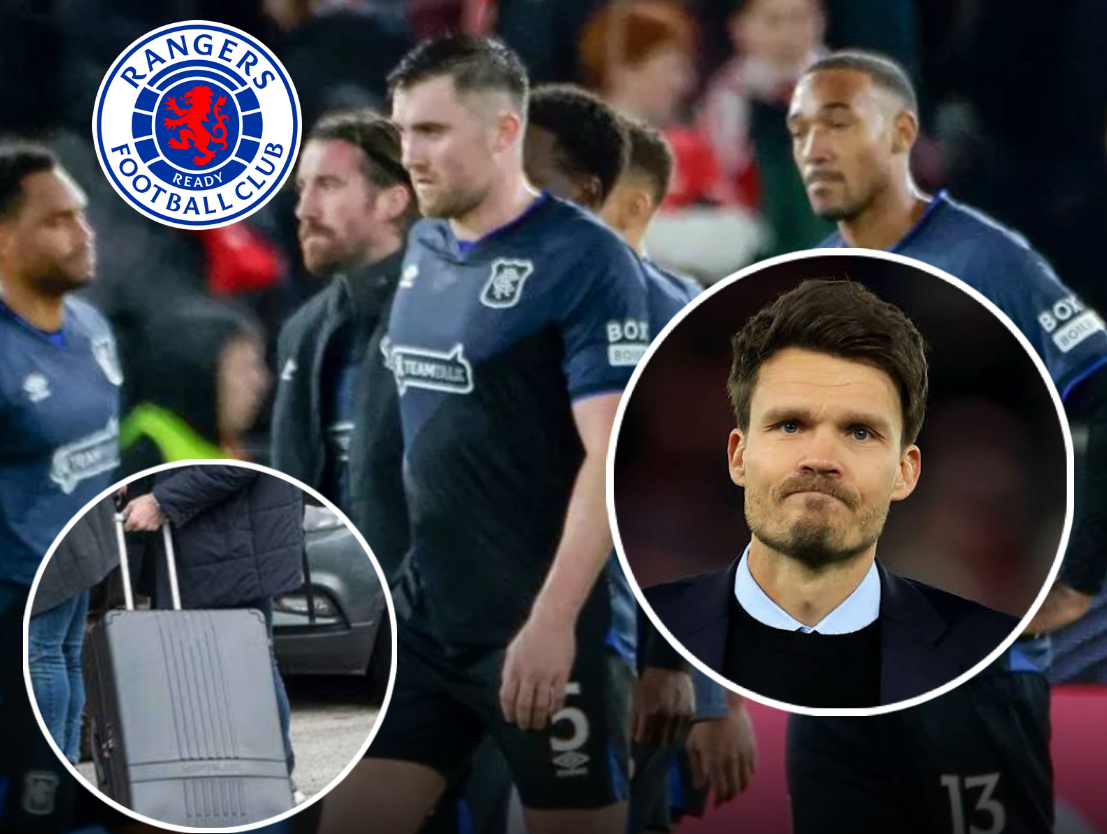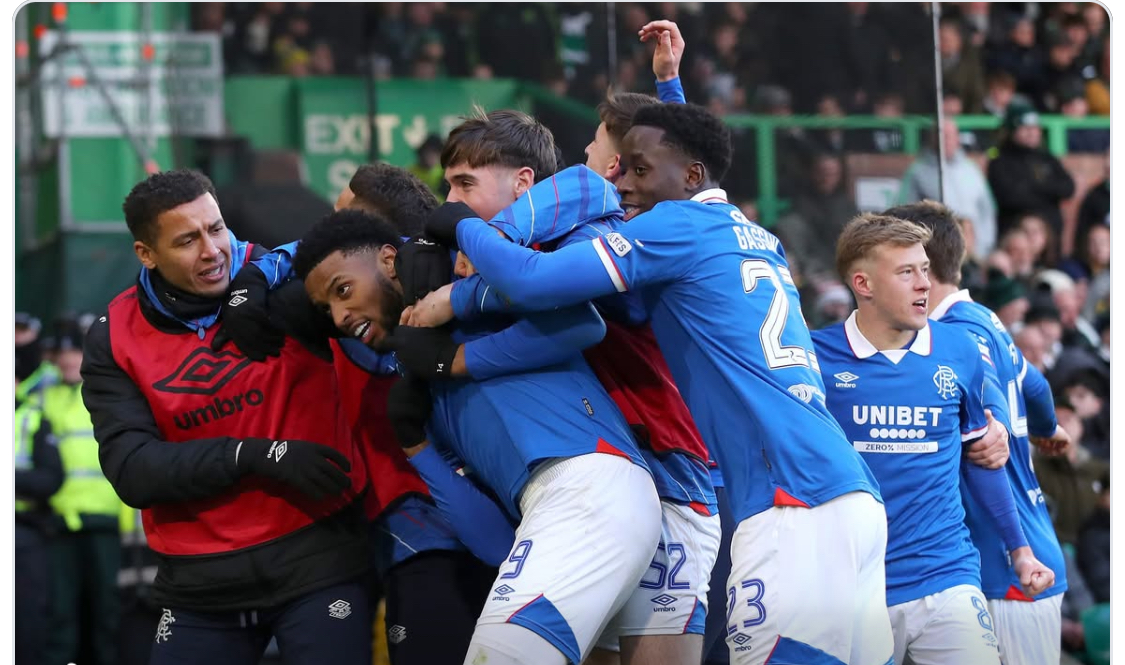RANGER SHOCKED BY EARLY SHOCKING DEPARTURE JUST FEW HOURS AFTER DANNY RÖHL SAID HE HAD NO PLAN FOR HIM,HE WASTED NO TIME
In a move that has sent shockwaves through the halls of Ibrox, one of the stars at Rangers appears to be ready to depart just hours after manager Danny Röhl publicly stated that the player was not part of his plans. The rapid turnaround—from clear message to potential exit—has left supporters and pundits alike scrambling to make sense of a sudden chain of events that few saw coming.
A managerial stance that left little room for ambiguity
When Röhl addressed the media earlier this week, his tone was firm: “There is no plan for him” he said when asked about the player’s role moving forward. He was unequivocal in stating that the squad plan didn’t include a pathway for this particular individual. In footballing terms, that’s a near-final verdict. Teams rarely send stronger signals.
Given that public declaration, the expectation among fans and insiders was clear: either the player would continue to fight for minutes under the radar, or his time at the club was effectively over. Most likely, the latter. And apparently, he wasted no time in positioning himself accordingly.
The sudden flip: exit looming mere hours later
In one of the most unexpected turns in recent Ranger history, the player in question is reportedly already making moves for an exit. Within hours of the manager’s statement, whispers emerged that a departure—possibly a loan or permanent transfer—is not only on the table, but could happen imminently. The speed of the development suggests that the decision was either pre-meditated or that the player himself simply couldn’t face the prospect of remaining a fringe figure.
What makes this scenario so riveting is the contrast between the formal message and the rapid unfolding of events. A club declares a player is out of its plans; the player responds with immediate action. It’s a textbook case of “you’re not wanted, so I’ll leave” played out in real time.
So: who is this player?
The individual at the centre of the storm is none other than Micky Moore. He has been tipped as the next big exit, and the timing couldn’t be sharper. Rumours had already linked Moore with clubs outside of Scotland, and his name was listed among those “ready to leave” in internal club circles.
Moore’s case is illustrative of an uncomfortable truth in football: when the manager says you aren’t part of the plans, your days are likely numbered—unless you can dramatically reverse your fortunes overnight, which is exceedingly rare.
Why this departure matters (and what it says about Rangers)
1. A sign of drift between player and club direction.
The public nature of Röhl’s remark underscores a breakdown in any plan for Moore’s involvement. If he’d been quietly phased out, perhaps a different path might have been taken. But to declare in the media: “you’re not in my plan” – that sends a definitive message about the relationship.
2. Reflects instability or rapid change at the club.
Rangers find themselves in a period of transition—both on the field and behind the scenes. The willingness to cut loose someone who clearly has talent suggests the club is in rebuild mode and wants players fully aligned with the new direction. Some fans will see that as healthy; others as unsettling.
3. Warns other squad members: alignment matters.
For other players at the club, the Moore situation is a stark example: talent alone isn’t enough if you don’t fit the system or the vision. The message may serve as a warning to others who are complacent or out of favour.
4. Potential ripple effects in the transfer market.
If Moore does leave quickly, it may spark a domino effect. Other players previously assumed safe may push for exits too. For Rangers, it could free up budget and roster space—but also risks weakening depth if replacements aren’t lined up.
What’s next? Likely scenarios and implications
Scenario A: A quick loan move.
Given the timing, a loan likely makes sense for all parties. Moore could get regular minutes elsewhere, Rangers offload a non-key player, and if he performs well, his value could increase. This kind of “let’s see him elsewhere” approach is common nowadays.
Scenario B: Permanent sale.
More dramatic—but also possible. If Moore is determined to leave and the club feels his future lies elsewhere, they may cut ties permanently. For a player who might feel stifled, this could be the best path for both sides.
Scenario C: Stalemate, remain-but-not-played.
Less likely given the speed of development, but always possible. Sometimes negotiations breakdown, a player stays but doesn’t play, morale drops, and eventually both side suffer. Would be ugly.
Implications for Rangers:
- Short term: The squad will need to absorb his exit; whether Rangers have adequate cover is now under scrutiny.
- Medium term: The club’s ability to recruit a replacement (or promote from within) will say a lot about their strategy and ambition.
- Long term: How the club handles this kind of “mid-season exit” will become part of the culture – will it signal the start of faster turnarounds or a more ruthless approach?
Fan reaction and locker-room mood
For Rangers fans, the news has elicited a mix of surprise, frustration, and resignation.
- Some feel that Moore always had potential and deserved a longer leash.
- Others believe that once Röhl publicly shut him down, the writing was on the wall—and the club is doing the right thing to clean house.
- Internally, players will likely be more alert. Knowing that the manager isn’t afraid to make such a move might foster competitiveness—but it also might create uncertainty if the communication isn’t handled with care.
From the locker room perspective, the situation likely has had a chilling effect. Teammates may wonder: if it happened to him, could it happen to me? In teams undergoing transition, maintaining morale is crucial—and abrupt departures can unsettle the squad. On the flip side, tensions may rise for players who sense their position is precarious.
Why Moore’s departure might actually benefit him
Let’s not overlook the personal side of the story. For Moore:
- He avoids being sidelined or under-utilised at a club where he’d been told he wasn’t in the plan.
- A fresh start elsewhere could reignite his career, give him playing time, and bring new opportunities.
- The drama might even increase his visibility: clubs looking at diamonds in the rough often spot those “exiting” lists.
Given that his name had already appeared in the “ready to leave” column for Rangers players, the writing had been on the wall. Moore’s decision (or mutual decision) to move may reflect his pragmatic acceptance of the situation.
Final thoughts: big risk, big reset
This is more than a single player walking out the door. It signals something deeper at Rangers—a willingness under Röhl’s regime to draw firm lines and act swiftly. Whether that approach pays dividends will be seen in the upcoming months.
For Moore, the move could be a blessing in disguise. Staying at a club where your role is hollow is worse than leaving to rebuild elsewhere. For Rangers, however, the onus now falls on them to ensure that they don’t simply lose a player—but that they replace value, depth and ensure their strategy remains intact.
The footballing world often talks about “tight squads” and “clear visions” – well, Rangers just demonstrated the consequences of not fitting one anymore. The question now is: who’s next? And can the club ensure that this kind of rapid departure doesn’t destabilise their season?
One thing is for sure: when a manager publicly states “you’re not in my plan” and the player is out the door hours later, the ripples are bound to be felt far beyond one seat on the bench.








Post Comment